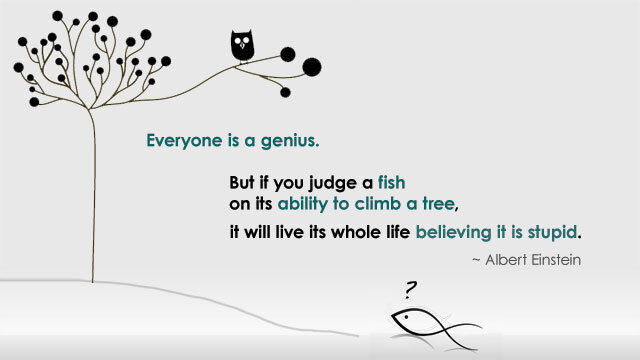Multiple Intelligences
"Everyone is a genius. But if you judge a fish on its ability to climb a tree, it will live its whole life believing it is stupid." This quote by Einstein reminds us to be aware that not all students are the same.
Did you know there are nine multiple intelligences identified by expert educators? Most students show a top two or three of these intelligences in their natural abilities. Classrooms, curriculums and lesson plans should be presented in a way to engage students in each of the types of intelligences.
Naturalist - Natural ability to understand and work with the natural environment
Musical - Natural ability with rhythm, melody, and other musical aptitudes
Logical/Mathematical - Natural ability with reasoning, numbers, logic and problem solving
Existential - Natural ability to use collective values and intuition to understand others and the world around them.
Interpersonal - Natural ability to process knowledge and work cooperatively with any variety of people
Bodily/Kinesthetic - Natural ability to process knowledge through movement
Verbal/Linguistic - Natural ability with words and language
Intrapersonal - Natural ability to understand one’s self
Visual/Spatial - Natural ability with shape, space, design, pictures and visualizing
The Bhagavad Gita explains the same. Encourage your children and students to find out their natural abilities, their intelligence style, and don’t push them to do something opposite to their nature.
“śreyān sva-dharmo viguṇaḥ
para-dharmāt sv-anuṣṭhitāt
svabhāva-niyataṁ karma
kurvan nāpnoti kilbiṣam
It is better to engage in one’s own occupation, even though one may perform it imperfectly, than to accept another’s occupation and perform it perfectly.”







